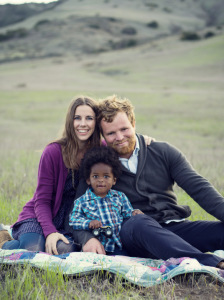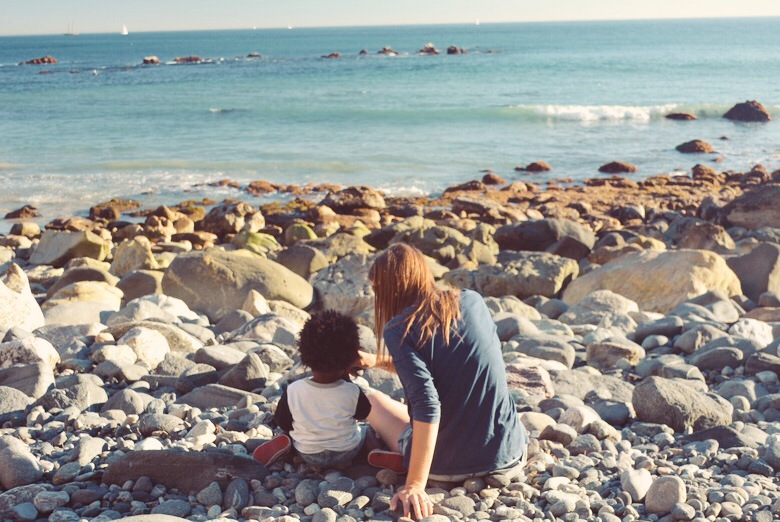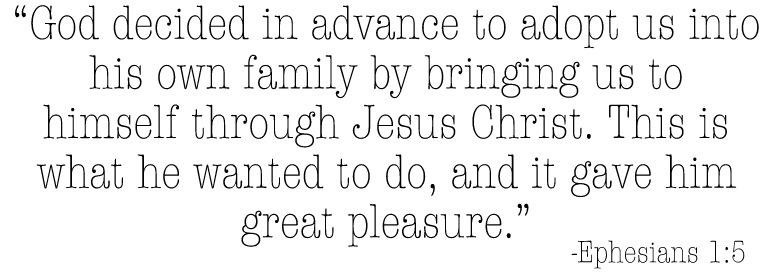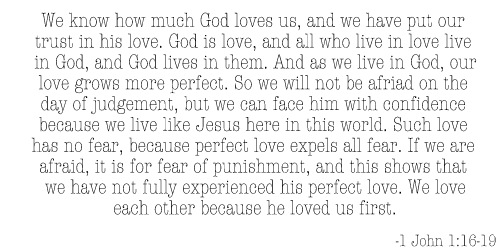Before we adopted Silas, we talked with many people about our desire to adopt. I think the fact that there wasn’t an actual child in the picture yet made some of them feel safe enough to express their true feelings about adoption. While most were supportive and positive, there were a select few who said things like, “Well, that’s great for you, but I could never do it. I just couldn’t love a child that isn’t my own.” There is so very much wrong with this statement, especially coming from Christians.
First of all, there’s the whole “my own”, “your own”, “their own” language. I hear it all the dang time, even from the most well intentioned people, and I’m sure I was guilty of it too at times before Silas came along. It usually goes something like this…”Oh you adopted!?! We have friends who adopted and also have kids of their own.” I understand that there are times when you need to distinguish between adopted kids and biological kids, but I think it’s important to use the correct language. Silas is “my own” kid. Your friend’s kids who were adopted are “their own” kids. When you ask me, “Do you have any kids of your own?”, I will tell you yes, and so will the legal document that we received when Silas was adopted. So, instead of “my own”, “their own”, “your own”, let’s use the word biological. Because all of us adoptive parents consider our children “our own.”
Okay, moving on….
So, there are some who think that they cannot love a child that is not biologically linked to them. I am sure this feeling is not uncommon, but it lacks an understanding of God’s love for us as adopted children. The Bible is filled with adoption language, and as Christians, adoption should not be a strange concept to us. We are considered children of God because of adoption.
We were all adopted! So, we should have an imagination for adoption in our own lives. Just because someone feels like they can’t love an adopted child doesn’t mean that’s reality. There’s a lot in the Gospel that doesn’t feel natural. Adoption may not feel natural in a world that sees the biological connection as the closest relational bond. Scripture, however, clearly teaches that adoption is God’s normal. It’s his way of bringing us into relationship with himself. The fact that it doesn’t feel natural is not a reflection of its abnormality or our inability to do it. It’s a reflection of a small imagination for God’s love for us and how he’s called us to embody this love to the world.
I’m not saying that if you have these feelings you just need to ignore them and adopt anyways. I’m just saying that we need to think hard about how we limit God’s love and diminish the Gospel when we have this mentality. God is bigger than we give him credit for, and his love for us is greater than we can imagine. If we grow in our knowledge and understanding of God’s love for us, our capacity to love will grow too.
I know with every fiber of my being that I could not possibly love Silas more. I did not give birth to him, I have no genetic link to him, and we look nothing like each other. And yet, I love him so fiercely it hurts. Biology is inconsequential when it comes to the amount of love I have for him. The vast majority of adoptive parents will tell you the exact same thing, whether they are Christians or not. God clearly designed us with the ability to love in this way, because he wove it into the very fabric of his gospel when he chose to redeem the world through our adoption as his sons and daughters.
__________________________________
 Mindy and her husband, Nick, adopted their son, Silas, domestically in August of 2013 after seven years of marriage and two years of unexplained infertility. They live in Southern California, where Nick is a pastor and elder at ROCKHARBOR church and Mindy is a part-time teacher. She also hosts an infertility and adoption group each month, where she gets to do life with women who share her deepest pain and her greatest passion. She blogs at Finding Sunday.
Mindy and her husband, Nick, adopted their son, Silas, domestically in August of 2013 after seven years of marriage and two years of unexplained infertility. They live in Southern California, where Nick is a pastor and elder at ROCKHARBOR church and Mindy is a part-time teacher. She also hosts an infertility and adoption group each month, where she gets to do life with women who share her deepest pain and her greatest passion. She blogs at Finding Sunday.



